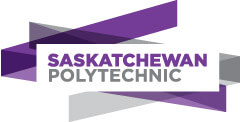About Computer Systems Technology Diploma in Saskatchewan Polytechnic
Program Overview
Computer systems technologists solve computer-related issues for businesses, government agencies, utilities, law enforcement agencies, health services providers, educational institutions and more. It’s a career that demands a unique blend of skills—computer literacy, technical know-how and communications savvy—but also lets you specialize in areas that interest you the most, including programming, software design, mobile application programming, data communications and web design.
The two-year Computer Systems Technology diploma is available full time at Saskatchewan Polytechnic Saskatoon campus and Regina Campus, with a number of courses also available through distance and/or continuing education. Comprehensive technical training gives you a solid foundation of theory and hands-on lab practice in:
- designing, installing and managing local area networks
- developing computer programs in various programming languages
- developing interactive web pages with multimedia components
- developing proficiency in several common computer application packages
- installing and configuring computer hardware and software
- performing systems analysis and design
- programming apps for mobile devices (smart phones, tablets, etc.)
- providing end-user technical support services
- troubleshooting and repairing hardware problems
You’ll also learn business principles, project management and communication skills—attributes potential employers look for when hiring for IT personnel.
Diploma to Degree
Transfer agreements with the University of Saskatchewan, University of Regina and University of Lethbridge let you ladder into a computer science degree with two more years of study. It’s a great way to expand your career horizons, while leaving the door open to earn a living with your diploma.
Your Career
Graduates are prepared for a wide variety of jobs: computer programmer, software designer/developer, mobile app programming, network analyst, webmaster, web designer and systems administrator. You also have a broad choice of work environments in the public and private sectors. You could work in the IT department of a large organization or be a one-person IT department for a small business. You could join a company that provides computer sales, installation and support for other businesses. Or you could set up your own IT business and work directly with clients.
Academic qualification equivalents:
- Grade 12 with a minimum 60% in each of the following subjects: English Language Arts A30, English Language Arts B30, Chemistry 30 and Pre-Calculus 30
English language requirements (one of the below):
- IELTS : Overall minimum score of Band 6.5 with a minimum score of 5.0 in each component.
- TOEFL : An overall minimum score of 81 on the Internet-based Test of English
- PTE : A minimum score of 63 with minimum component scores of 50.
Saskatchewan Polytechnic Highlights
| Type |
Public |
| Campus Setting |
Urban |
| Application mode |
Online and Paper mode available |
| Graduation rate |
62% |
| Acceptance rate |
96% |
| Number of Students |
16,008 |
| Overall cost of living |
14,762 CAD |
| Academic calendar |
Semester based |
| % of International students |
6% |
| Number of campuses |
4 |
| Medium of instructions |
English |
| Undergraduate Tuition fee |
14,044 CAD |
| Postgraduate Tuition fee |
16,426 CAD |
| Cost of living |
694 -1147 CAD per month |
Saskatchewan Polytechnic First-Year Tuition Fees And Living Expenses For International Students
Over the course of one academic year, the following graph displays tuition and living expense estimates in Canadian currency for one full-time international undergraduate student. Please bear in mind that these are only estimates; actual pricing will vary depending on your needs and preferences. Other factors to consider include currency changes, visa and study authorization fees, and vacations back home.
- For international students, the overall fees will range from:-
| Particulars |
Amount |
| Administrative fees |
50.00 to 150.00 CAD |
| Application fees |
150 CAD |
| Student association fee |
95.00 to 445.00 CAD |
| Non-refundable fee at the start) |
1,000 CAD |
| Tuition fee range |
6,195 to 18,089 CAD |
| Laboratory fee |
100.00 to 409.00 CAD with no fees for
some courses which do not have a lab service. |
| Books and Supplies |
200 to 3,725 CAD |
| Technology fee |
50 to 146 CAD |
- For a student of Saskatchewan Polytechnic the required financials (Cost of Attendance) can be:-
| Description of Financials |
Amount in CAD |
| Average cost of tuition |
11245.77 CAD |
| Cost of living |
10799.39 CAD |
| Application fee |
150 CAD |
| Estimated total (per year) |
22,195.16 CAD |

